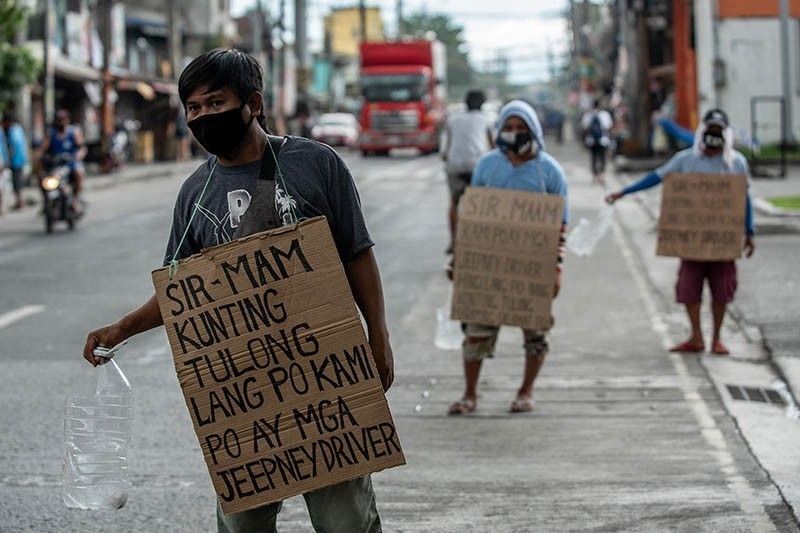No improvement in Philippines' score on Corruption Perceptions Index

MANILA, Philippines — The Philippines saw no improvement on its score in a global corruption index by Transparency International, which stressed that lack of progress in curbing corruption has had a direct effect on pandemic responses across the world.
Leading the Asia Pacific with a score of 88 on the Corruption Perceptions Index is New Zealand, followed by Singapore (85), Australia (77) and Hong Kong (77). Transparency International said the average score for the region is 45, with the Philippines retaining its score of 34.
"In Asia Pacific and the Americas, some governments used COVID-19 to consolidate power, but left citizens without access to emergency aid," the NGO, which also noted that the pandemic "exposed several cracks in already weak governance systems," Transparency International also said.
"With a score of 34, efforts to control corruption in the Philippines appear mostly stagnant since 2012," it also said in its note on the Philippines, which was at 115th place.
Countries are scored by "perceived levels of public sector corruption, according to experts and businesspeople" and use data from 13 sources from 12 institutions that "that capture perceptions of corruption within the past two years."
SPECIAL REPORT: Coping in quarantine: A hard time for all but inequality makes it worse
Why does curbing corruption matter?
Transparency International said that corruption has been prevalent across the world's COVID-19 response from bribery for COVID-19 tests, treatment and other health services, to public procurement of medical supplies and overall emergency preparedness."
The NGO said that corruption takes public funds away from spending on essential public services, with countries with higher levels of corruption tending to spend less in health. This means that communities are left without enough doctors, equipment, medicine, and facilities.
"In addition, a lack of transparency in public spending heightens the risk of corruption and ineffective crisis response," it also said.
Corruption also contributes to democratic backsliding, Transparency International's 2020 report said, adding those "with higher levels of corruption rely on less democratic responses to the crisis."
Abuse and rights violations
Transparency International noted that the Philippine government's response to COVID-19 "has been characterized by abusive enforcement, and major violations of human rights and media freedom."
The COVID-19 pandemic saw Luzon go under a strict lockdown in early 2020 and the entire country remains under community quarantines.
Policies like restrictions on movement, curfews and a prohibition on mass gatherings were vigorously enforced, with The STAR reporting last October that 123,994 quarantine violators had been detained since March, with most of those arrested for resistance and disobedience to those restrictions.
Some who were caught violating curfew were made to sit under the heat of the sun while some were put inside dog cages.
Last year also saw broadcasting giant ABS-CBN being taken off the air after a House panel voted against renewing its franchise. The decision was hailed by government supporters as a blow against the oligarchy and by rights advocates as a threat to press freedom and to the right to information.
RELATED: Philippines drops 14 places in 2019 Corruption Perceptions Index
Pandemic brings greater need for transparency
Transparency International said countries must strengthen their oversight institutions to make sure "resources reach those most in need and are not subject to theft by the corrupt." To do that, governments should make sure oversight and anti-corruption bodies have enough funding, resources and independence to do their jobs.
Noting that many countries have relaxed their procurement processes because of the global health emergency, the NGO said governments should ensure open and transparent contracting.
"These rushed and opaque procedures provide ample opportunity for corruption and the diversion of public resources," it said.
"Contracting processes must remain open and transparent to combat wrongdoing, identify conflicts of interest and ensure fair pricing."
Defending democracy and allowing citizens to hold governments available will also help curb corruption, Transparency International said, noting "the COVID-19 crisis exacerbated democratic decline, with some governments exploiting the pandemic to suspend parliaments, renounce public accountability mechanisms, and incite violence against dissidents."
Governments should also make sure their citizens have access to relevant data, particularly on spending and distribution of resources to address the COVID-19 pandemic.
"Governments should also ensure people receive easy, accessible, timely and meaningful information by guaranteeing their right to access information," the Corruption Perceptions Index 2020 report reads. — Jonathan de Santos
- Latest
- Trending

































